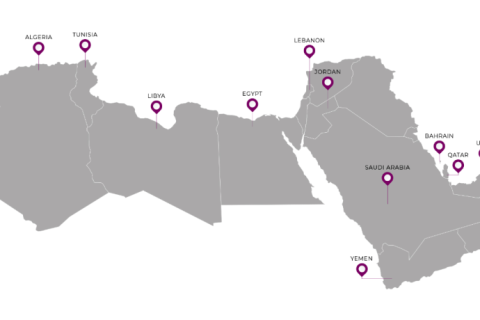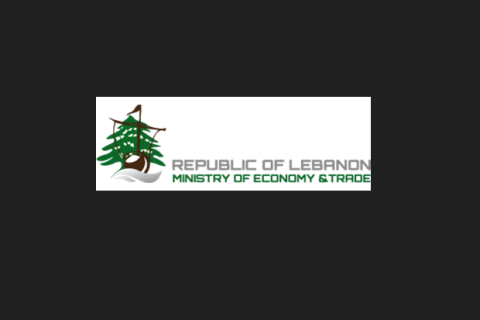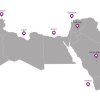INTRODUCTION TO UAE TRADEMARK LAWS FOR AN EXPERIENCED IP LAWYER
Introduction:
Trademark protection in the United Arab Emirates (UAE) is a crucial aspect of intellectual property law, serving as a cornerstone for businesses to safeguard their brands, products, and services in a competitive market. As an experienced intellectual property lawyer, understanding the intricate details of UAE trademark laws, regulations, and processes is paramount to effectively advising clients and ensuring their intellectual property rights are adequately protected.
Why Trademark Protection in UAE?
The UAE, with its booming economy and strategic location as a global business hub, offers immense opportunities for local and international businesses. However, with opportunities come challenges, and protecting trademarks is fundamental to mitigating risks associated with infringement, counterfeiting, and unfair competition. Trademarks not only distinguish products and services in the marketplace but also serve as valuable assets that can enhance brand reputation and consumer trust.
Primary Trademark Laws and Regulations:
The primary legislation governing trademark protection in the UAE is Federal Law No. 37 of 1992 concerning Trademarks and came into force in 1993.
The UAE is also signatory to the Information Technology Agreement of the World Trade Organization (WTO), a treaty binding 78 countries (representing 97% of world trade in IT products) that seeks to eliminate tariffs on IT products. The numerous goods covered by the treaty are valued at over $1.3 trillion per year. Link
The United States signed a Trade and Investment Framework Agreement (TIFA) with the United Arab Emirates (UAE) in 2004 to provide a formal framework for dialogue on economic reform and trade liberalization. Through this process, the United States Government can identify potential partners for further trade cooperation, such as free trade agreements (FTA). Link
Furthermore, the UAE is a signatory to various international treaties and agreements aimed at harmonizing intellectual property rights globally. Key treaties include the Paris Convention for the Protection of Industrial Property and the Agreement on Trade-Related Aspects of Intellectual Property Rights (TRIPS), which reinforce the UAE’s commitment to upholding international standards of trademark protection. Link
The UAE has signed GCC Free Trade Agreements with several countries and trade groups across the world to enhance its position as a global trade hub and major destination for investments. It also seeks to increase Emirati exports, improve competitiveness in foreign markets, regulate competition, reduce trade barriers facing national products, boost its investments abroad, and protect intellectual property rights. This also covers tariff barriers, trade services, investments, intellectual property rights, dispute settlement, investment in manufacturing sectors, and protection of property rights to prevent trafficking of counterfeit products. Link
UAE Trademark Authorities:
The administration and enforcement of trademark laws in the UAE are managed by key entities such as the Ministry of Economy, the UAE Trademark Office (TMO), the judiciary, and customs authorities. It is worth noting that although there are several TMOs throughout the Emirates, the main office is situated in Abu Dhabi. The TMO, functioning under the Ministry of Economy, is instrumental in handling trademark registrations, performing detailed examinations, and supporting the enforcement of trademark laws.
New Trademark Law in UAE:
UAE issued its own trademark law: Federal Trademark Law No 36 of 2021, which came into effect in January 2022. This groundbreaking legislation reflects the country’s commitment to creating a conducive environment for intellectual property rights and reinforcing its position as a global hub for innovation and investment. The new trademark law introduces several significant changes aimed at modernizing the UAE’s trademark regime and aligning it with international best practices.
Deciphering the Trademark Law in UAE:
- Absolute Conditions to Protect a Trademark:
– Trademarks must meet specific criteria outlined in the law, including distinctiveness, non-descriptiveness, and non-violation of public order or morals. As per Article 3 of Federal Trademark Law No 36 of 2021: The following shall not be a trademark or a part of it, and shall not be registered under this description:
- A mark that is free of any distinguishing characteristic or that consists of data that is nothing, but the designation of goods and services based on custom, or the usual drawings or ordinary images of goods and services.
- Expressions, drawings or signs that violate public morals or public order.
- Public emblems, flags, military and honor insignia, national and foreign badges, coins, banknotes and other symbols of the State or other states, or of Arab or international organizations or one of the institutions thereof, or any imitation of any such.
- Red crescent or red cross symbols and other similar symbols, and the marks that imitate such.
- Marks identical or similar to symbols of a religious nature.
- Names and geographical data if their use leads to confusion as to the source or origin of goods or services.
- The name, title, image, logo, or fame of a third party unless he or his heirs agree in advance to the use of such.
- Details of honorary degrees or academic degrees for which the applicant does not prove his legal entitlement.
- Marks that may be misleading to the public or include false statements about the origin or source of goods or services or about their other characteristics, and marks that contain a trade name owned by a third party.
- Marks owned by natural or legal persons with whom dealing is prohibited in accordance with the laws in force at the State.
- A trademark that is identical or similar to a mark previously filed or registered by a third party for the same goods or services or for related goods or services if the use of the mark to be registered creates an impression of linking it with the goods or services of the registered trademark owner or leads to harming his interests.
- Marks whose registration for some goods or services reduces the value of the goods or services distinguished by a previous mark.
- Marks that are copies, imitations, translations, localizations, or any audio transcription of a well-known trademark or a part thereof owned by third party, for use in distinguishing goods or services identical or similar to those that use the well-known trademark to distinguish such.
- Marks that are copies, imitations, translations, localizations, or any audio transcription of a well-known trademark owned by third party, or an essential part thereof, for use in distinguishing goods or services that are not identical or similar to those distinguished by the well-known trademark, if such use indicates a link between those goods or services and the well-known trademark. And if such a mark is registered, it is likely that such registration will harm the interests of the owner of the well-known trademark.
- Marks that include the following words or phrases: privileged, of privilege, registered, registered drawing, copyright, or other similar terms and phrases.
- Any three-dimensional mark consisting of a shape resulting from the nature of the goods specified in the registration application or necessary to achieve a technical result; with no distinctive elements that distinguish it from others.
- International Designation through WIPO:
UAE allows for international trademark registration through the World Intellectual Property Organization (WIPO), providing businesses with broader protection beyond national borders.
The said instrument of accession was accompanied by: Link
The declaration referred to in Article 5(2)(b) and (c) of the Madrid Protocol, whereby the time limit of one year to notify a provisional refusal of protection is replaced by 18 months, and a provisional refusal resulting from an opposition may be notified after the expiry of the 18-month time limit; and
The declaration referred to in Article 8(7)(a) of the Madrid Protocol, whereby the United Arab Emirates want to receive an individual fee when they are designated in an international application, in a designation subsequent to an international registration and in respect of the renewal of an international registration where they have been designated, instead of a share in the revenue produced by the supplementary and complementary fees.
- Trademark Filing Priority Claims:
Applicants can claim priority based on previous trademark applications filed in other member states within specified timeframes, as per the Paris Convention. As per the article 11 of the Federal Trademark Law No 36 of 2021 “If the trademark applicant or his successor wishes to enjoy the right of priority to register the trademark based on a previous application filed in a member state of the Paris Convention on Industrial Property or a multilateral international agreement to which the State or one of the countries of the Cooperation Council for the Arab States of the Gulf is a party, or a bilateral international agreement to which the State is a party, he shall attach to his application a copy of the previous application and a declaration stating the date of the previous application, its number and the country in which it was filed, within (6) six months as of the date of the registration application on which the right of priority is based, otherwise his right to claim priority of registration shall be forfeited.”
- Trademark Filing – Required Documents:
The trademark application process requires submission of prescribed forms, including a clear representation of the mark, details of the applicant, and a list of goods or services.
The documents required for trademark protection in UAE are:
- A sub legalized Power of Attorney. The applicant’s Power of attorney needs to be notarized by a Notary Public and legalized by the UAE consulate and then locally legalized in the Ministry of Foreign Affairs (MOFA) in the UAE.
- A certified priority document translated to Arabic if priority is being claimed.
Moreover, in the online filing system, the TMO in UAE is allowing the late filing of the documents. The applicant or the representative may submit an affidavit confirming that they will provide the legalized document t within 90 days of the filing date. It’s important to note that this 90-day window is non-negotiable and cannot be extended.
- Who can register a trademark?
As per article (6) of the Federal Trademark Law No 36 of 2021 “Any natural or legal person has the right to register his trademark, in accordance with the provisions of this Decree-Law.”
- Trademark Classifications:
The process of trademark registration involves categorizing trademarks into specific classes based on the Nice Classification 10th edition. In the United Arab Emirates (UAE), trademark registration operates under a comprehensive system comprising 45 classes. These classes are further divided into 34 categories for goods or products and 11 categories for services. Each class represents a distinct category of goods or services, allowing for precise identification and classification during the registration process.
As per article 8 of the trademark law in UAE “a trademark may be registered for one or more classes by applying for one of the classes of goods or services in accordance with what is specified in the Executive Regulations of this Decree-Law.” Yet, the TMO in UAE has not implemented the multiclass filing system, and the Ministry of Economy has yet to release guidelines concerning the official fees for multiclass applications. This means that UAE does not allow the filing of multiclass applications. Each application is limited to a single class of goods or services. Therefore, if an applicant wishes to protect their trademark in multiple classes, they must file separate applications for each class.
- Limitation on Classes, Goods, and Services:
In UAE, trademark applications are subject to limitations regarding classes, goods, and services. Specifically, the UAE Trademarks Office imposes restrictions on the number of classes that can be included in a single application, as well as the types of goods and services that can be covered within each class.
Additionally, the UAE follows the International Classification of Goods and Services for the Purposes of the Registration of Marks under the Nice Agreement. When filing a trademark application in the UAE, applicants must ensure that the goods and services they wish to protect fall within the scope of the designated class.
It’s important for applicants to carefully consider the type of goods and services related to their trademark before filing an application in the UAE to ensure compliance with the country’s regulations and to maximize the protection of their intellectual property rights. As all the goods and services related to alcohol, pork, ham, beer, pubs, night clubs, bars, casinos and Gambling tools and machines are not registrable in UAE.
- Trademark Prosecution – Process to Protect a Trademark:
Step 1: Preliminary Trademark Availability search
This process is not obligatory, but it is recommended that the applicant conduct an official search to check if their trademark is available for registration and assess any potential rejection or opposition.
Step 2: Filing the Trademark Application
The applicant must provide the agent with all the required documents to proceed with filing the mark, such as a copy of the mark or logo, the applicant’s name and address, and a list of goods and services. These details are essential for proceeding with the application filing.
The applicant has 90 days to submit the Locally legalized Power of attorney, or they will receive a rejection.
- Trademark Examination and Notification:
After filing the application, the TMO conducts a thorough examination of the proposed trademark, typically within a timeframe of 6 to 8 months. And they will then issue a decision to either:
1- Accept the mark and the applicant has 30 days to pay the publication fees.
2- Reject the mark and the applicant has 30 days to respond to the rejection decision with further appeal options available. Failure to do so may result in application cancellation.
Trademark Acceptance notification:
An email will be sent to the agent responsible for the mark by the examiner working in the TMO, stating that the mark has been accepted and attaching the acceptance decision. Then, they will inform the agent that they have 30 days to settle publication fees. Delays in settling publication fees will incur additional penalties.
Sometimes, the examiner does not send an email about the acceptance; they issue it directly on the Ministry of Economy portal for trademark registration. The agent needs to check on a daily basis and search by the filing number if any decision has been issued.
Trademark Rejection notification:
If the trademark is rejected, the examiner sends an email to the agent responsible for the mark’s registration, notifying them of the rejection. This notification email contains the date of the rejection, the reason for the rejection, and the timeframe within which to respond to this decision.
The mark may be rejected based on the following grounds:
Absolute Grounds (preventing registration under Article 3 of the law): Lack of distinctiveness, descriptive marks, geographic indications, marks that violate public or social order, logos of Red Crescent, etc.
For example, when filing a trademark with geographic words or signs such as “India,” proof needs to be provided to the examiner that the goods are related to India, or they might consider it as a means of deceiving consumers.
Relative Grounds: If similar previously registered marks are found in the system, the TMO will issue a rejection against the recent application if they are registered in the same class or in similar classes.
Upon receiving the rejection, a written appeal must be filed against the registrar’s decision within 30 days—a non-extendable deadline—otherwise, the application will be automatically canceled at the Trademark Office. If the reply gets rejected, the applicant has the right to appeal to the grievance committee within 30 days from the date of its notification. Moreover, in case the appeal was rejected by the Grievance Committee, the applicant can appeal before the Federal Court of Appeal within 30 days from the date of its notification.
- Trademark Publication:
Accepted trademarks are published in the Official Gazette after payment of the publication fees by the agent. The mark will be published within 30 days to provide public notice and allow interested parties to file oppositions within prescribed timelines.
The official gazette can be found and downloaded through the link below:
https://www.moec.gov.ae/en/-/1-trademarks-bulletin-issue-214-introduction-1?delta=4
- Trademark Oppositions:
Third parties have the opportunity to oppose published trademarks within 30 days after publication, citing grounds such as prior rights, similarity, proof of prior trademark registration/s and filing/s by the opponent in the UAE or internationally, bad faith….
Opponents need to submit a formal opposition statement to the TMO in UAE. This statement should detail the grounds for opposition and provide evidence supporting their claims in addition to a locally legalized Power of Attorney.
Then, the team responsible for the opposition working at the TMO in UAE will notify the applicant by email that an opposition was filed against his mark. The applicant has 30 days from notification date to file a counter opposition defending its application. in case the applicant does not submit a reply within 30 days the applicant is deemed to have assigned his request and his application will be considered withdrawn.
In this situation the TMO office will issue the final decision and it takes from 4-8 months to be issued.
In case the applicant filed a counter opposition, the TMO will then set the timeline for hearing statements and taking on record the evidentiary documents and they will notify the opponent. Then a hearing will be held and each party willing to add additional documents or attend the hearing must pay the hearing fees and the objection committee will send an email about the date and time of the hearing. After the hearing, the Objection committee will provide both parties with the final decision.
- Trademark Registration:
Upon successful completion of the publication phase without objections, the agent, on behalf of the applicant, can proceed with paying the final registration fees. The TMO will issue the registration certificate after payment. The agent has 60 days after the end of the publication period to pay the final registration fees, or penalties will be applied for delays. It’s worth noting that the registration certificate is electronic, and no hard copies are issued. A trademark registration is valid for 10 years as of the date of filing the application renewable for similar periods.
- Renewing Trademarks + Grace Period for Trademark Renewal:
Trademark renewal is crucial for maintaining continuity of protection, ensuring that businesses are protected from unauthorized usage by competitors or third parties. By renewing trademarks, businesses not only preserve their brand identity, reputation, and market position but also nurture consumer trust and loyalty. Moreover, Trademarks in UAE require periodic renewal to maintain validity, with a grace period provided for late renewals subject to additional fees. However, it’s worth noting that trademark owners need to pay attention to renewal deadlines, as failing to renew within the specified timeframe can lead to the loss of their trademark.
In UAE, providing proof of use is not necessary to renew your trademark, but the mark will be vulnerable to cancellation if not used after 5 years as per article 24 bis of the Federal Decree-Law No. (36) of 2021:“Any concerned party may request the Ministry to remove a trademark that has not been used for a consecutive period of (5) five years, unless there are exceptional circumstances that prevented the use of the trademark.”
Trademark registration in UAE is valid for a period of 10 years from the filing date and its registration may be renewed for similar durations.
In UAE, you can apply for renewal within the last six months before the expiration date of the trademark registration.
Grace period for trademark renewal:
The grace period for renewing a trademark in the UAE extends to six months after the expiration date. Failure to renew within this timeframe results in cancellation. Subsequently, the trademark owner can submit and register his mark again within three years of cancellation, during which no other party may apply for the same trademark. Should a trademark be cancelled, its owner retains the option to request re-registration at any time, unless it has been registered by another party after the initial three-year period.
The required documents for renewing a trademark in UAE are:
- In case of a local company or a resident of the UAE, a notarized Power of attorney is needed.
- In case the applicant is not resident of the UAE, a legalized Power of Attorney at the UAE embassy is needed.
- Copy of the trademark certificate
- In case of a local company or a resident of the UAE, a simple copy of the trade license.
Key Steps in the IR Path for Trademark Registration in the UAE:
- Eligibility: Businesses and individuals eligible for trademark registration in the UAE can utilize the IR system to extend protection to the country. An International Registration originating from the UAE Trademark Office extends exclusively to companies based in the UAE (any of the seven Emirates).
- Application Submission: Trademark owners initiate the process by submitting an application through the World Intellectual Property Organization (WIPO), designating the UAE for protection. The applicant can file a trademark under multiple classes through a single application. for an International Application, the POA can be submitted simply signed by the applicant.
- Examination: Upon receipt of the application, the UAE’s trademark office conducts an examination to ensure compliance with local regulations. International Registration via WIPO may take 12 to 18 months for completion, depending on the responsiveness of the designated member countries’ IP offices.
- Registration: If no rejections are issued or if any oppositions filed are successfully resolved, the trademark will be registered in the UAE, granting the owner exclusive rights to use the mark within the country.
Pros and cons of the International Registration (IR) System for trademark owners in the UAE:
Pros:
- Cost-Effectiveness: Filing an International Registration through the Madrid System can be cost-effective for trademark owners in the UAE, especially if they seek protection in multiple countries. For example, instead of filing separate applications in each jurisdiction, a UAE-based company can file a single application through WIPO, potentially saving on administrative and filing costs.
- Efficiency: The streamlined procedures of the IR System can save time for trademark owners in the UAE. For instance, rather than navigating the individual filing requirements of each country, a UAE-based brand can submit one application through WIPO, simplifying the process and reducing administrative burden.
- Global Protection: The IR System enables trademark owners in the UAE to secure protection for their marks in multiple countries simultaneously. For example, a UAE-based company expanding its operations into international markets can use the Madrid Protocol to obtain trademark protection in various countries where it intends to operate, facilitating global brand management.
Cons:
- Limited Scope: While the IR System offers broad geographical coverage, it may not cover all countries of interest to trademark owners in the UAE. For instance, some countries, particularly in the Middle East region, may not be party to the Madrid Protocol, limiting the scope of protection available through IR.
- Dependency on Basic Application: The validity of an International Registration is dependent on the existence and maintenance of the basic application or registration. If the basic application or registration in the UAE is cancelled or invalidated, it may affect the International Registration. For example, if the UAE-based basic application is refused, the corresponding International Registration may also face challenges.
- Dependency on Local Agents: While the IR System streamlines the initial registration process, trademark owners in the UAE may still need to engage local trademark agents for certain proceedings in designated countries. For example, if an opposition arises in a specific country, the UAE-based trademark owner may need to hire a local agent to represent their case.
- Provisional Refusals in UAE: When a provisional refusal is issued against an International Registration in the UAE, the applicant has a limited period, typically 30 days, to respond to the refusal. This involves preparing a detailed response to address the grounds of refusal, which may include submitting additional evidence or arguments to support the registration. The appointed agent will also need a legalized Power of Attorney (POA) to act on behalf of the applicant. Additionally, the process may be slower compared to responding to a provisional refusal for a national registration.
Frequently Asked Questions:
To protect a trademark in UAE, do you need a local trademark agent?
– In accordance with UAE legislation, Local and Foreign Companies and individuals can apply for registration of Trademark in UAE only through a local Agent. This local agent must be either a licensed lawyer or an intellectual property practitioner authorized to practice before the UAE Trademark Office.









